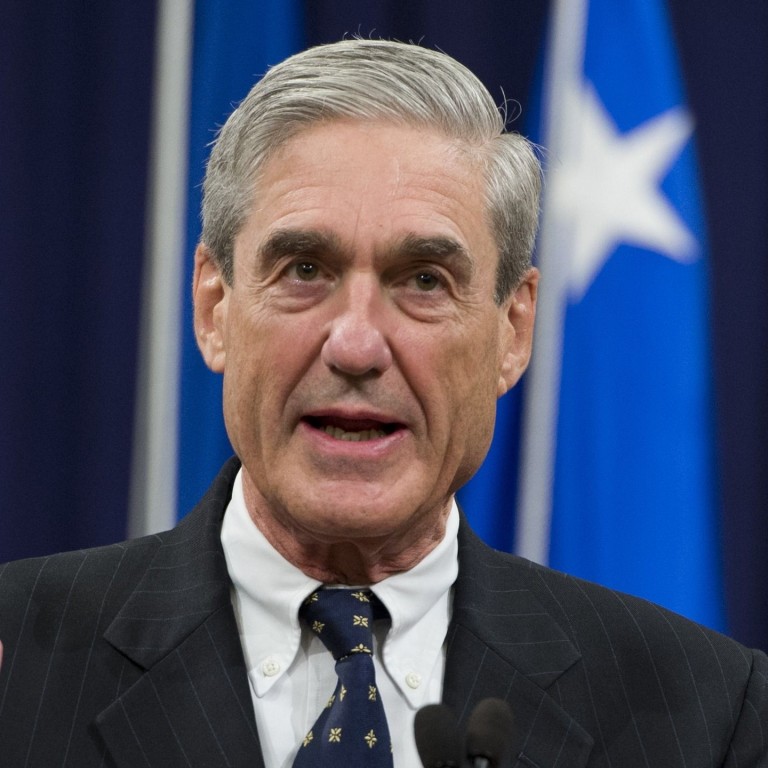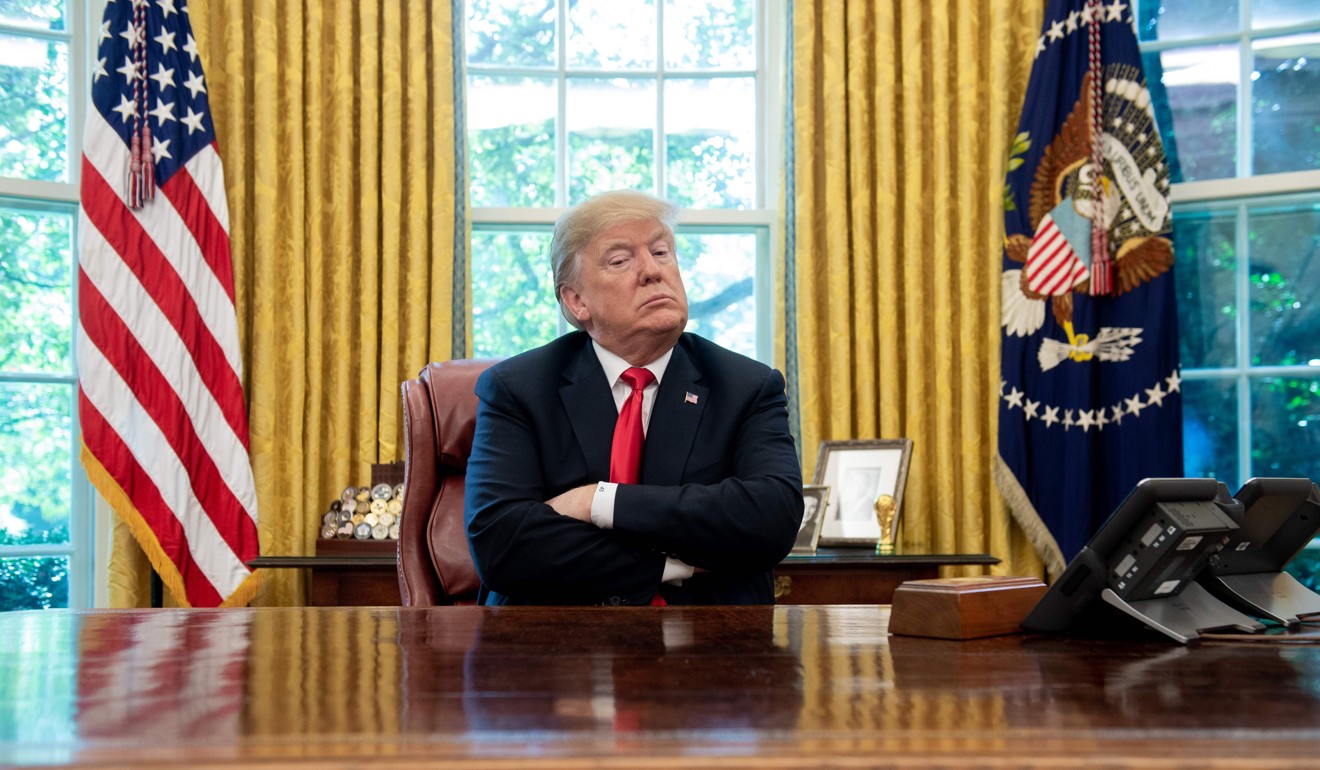
Robert Mueller’s grand jury probing Donald Trump’s ties with Russia has been extended – does that mean more indictments are coming?
- Mueller’s probe has been a lightning rod for criticism by the White House and its Republican supporters, with the president regularly describing it as a ‘witch hunt’ despite a series of guilty pleas by former aides
Special Counsel Robert Mueller’s grand jury has more time to complete its work – and that may mean more indictments are coming.
Beryl Howell, chief judge of the Washington federal court where the panel convenes to hear evidence in secret, has extended the grand jury’s term, court spokeswoman Lisa Klem said on Friday. The panel began hearing evidence in July 2017, two months after Mueller was appointed to investigate Russian interference in the 2016 presidential election and potential ties to President Donald Trump’s campaign.
That extension “indicates that at least in Robert Mueller’s mind, there’s at least potential additional criminal charges to be brought,” said Seth Waxman, a former federal prosecutor in the capital who has been following developments in the probe.

Among the people the panel has indicted: former Trump campaign chairman Paul Manafort; the president’s first national security adviser, Michael Flynn; three Russian businesses and 13 individuals who allegedly conspired to roil the US prior to the election using social media; and a dozen Russian intelligence agents accused of hacking Democrats’ computers.
While Klem declined to say how much longer the jurors may sit, federal rules of criminal procedure allow for a six-month extension upon a court finding that it’s in the public interest.
Expiration of the panel’s term won’t necessarily spell the end of the special counsel’s work either, Waxman said. Mueller could impanel a new grand jury if work remains to be done, Waxman said, explaining that’s something prosecutors prefer not to do because it may result in having to present evidence that had already been heard by the prior panel.
In Robert Mueller’s mind, there’s at least potential additional criminal charges to be brought
“It would be burdensome to put that testimony before a new grand jury,” because sometimes that testimony must be imparted in the form of transcripts read to the new panel, absent context and a live witness’s demeanour, former Chicago federal prosecutor Renato Mariotti said.
Former Justice Department lawyer Ryan Fayhee echoed that point. “They clearly invested a lot in this particular grand jury and they don’t want to redo it,” he said.
Still, Mariotti added, “we can conclude that Mueller has put a significant amount of testimony before a particular grand jury and believes that that testimony will likely result in charges within a six-month period.”
Mueller’s probe became a lightning rod for criticism by the White House and its Republican supporters.
The future of Mueller’s investigation was also thrown into question after November’s midterm congressional elections, after Trump ousted Attorney General Jeff Sessions and elevated Matthew Whitaker to oversee the probe in an acting capacity.
Whitaker did not adopt a conclusion by a senior Justice Department ethics official that he should recuse himself from overseeing the investigation because of his past criticism of it and friendship with a witness. Advisers to Whitaker recommended the opposite, people familiar with the matter said.
In one of their first moves upon taking control of the US House of Representatives this week, Democratic lawmakers reintroduced legislation Thursday to protect Mueller if Trump attempts to fire him, by permitting Mueller to appeal such an order to a panel of judges.
Trump’s long-term pick for attorney general, William Barr, sent an unsolicited memo to the Justice Department last year criticising parts of the Mueller probe as “fatally misconceived”.
The 20-page memo, sent in June while Barr was in private practice and months before he was selected by Trump for the Justice Department job, may prompt questions about his ability to oversee the special counsel’s investigation fairly.
The document argues that there could be disastrous consequences for the Justice Department and the presidency if Mueller were to conclude that acts a president is legally permitted to take – such as firing an FBI director – could constitute obstruction of justice, just because someone concludes that there was corrupt intent.
Additional reporting by The Washington Post and Associated Press

